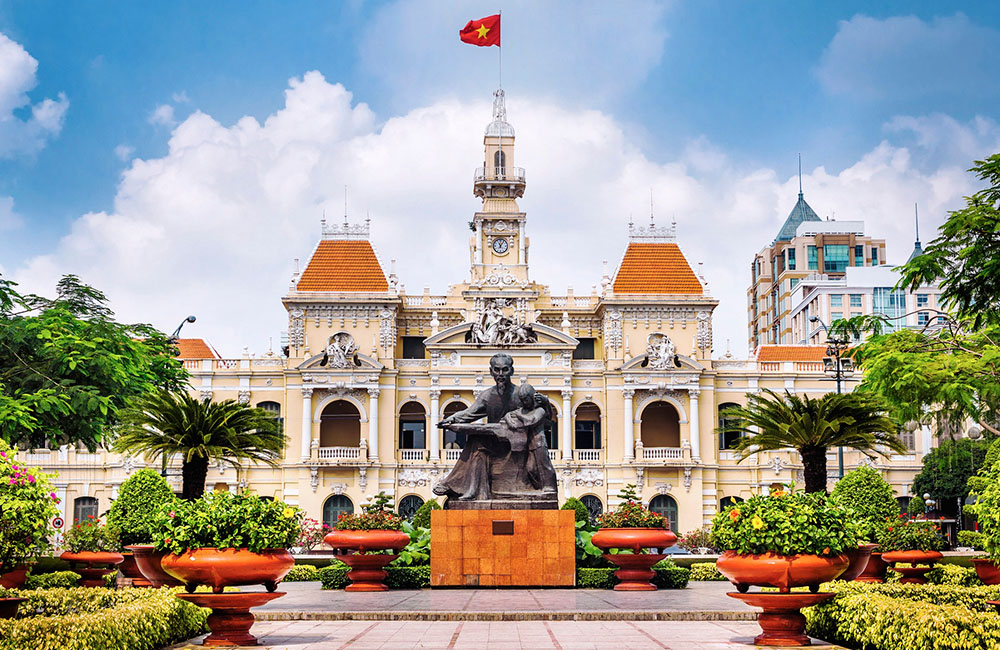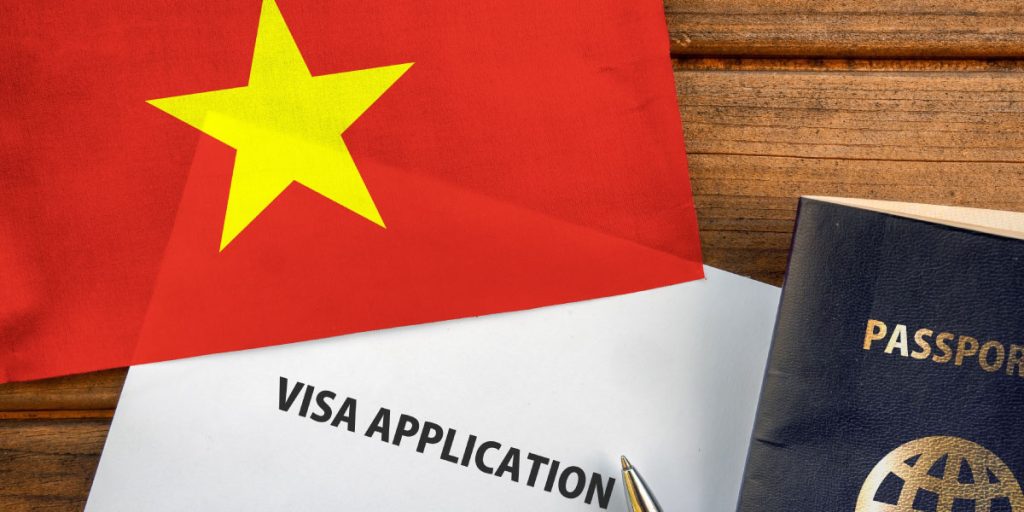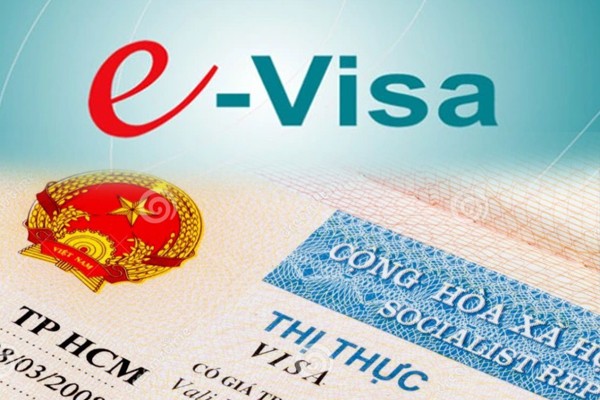Why You Need a Visa to Travel in Vietnam – Understanding Visa Regulations for Your Trip
When planning your trip to Vietnam, one question that often arises is, “Why do you need a visa to travel in Vietnam?” The answer is deeply rooted in the nation’s efforts to manage tourism, maintain security, and foster diplomatic relations. This comprehensive guide elucidates the ins and outs of Vietnam’s visa requirements, enabling travelers to navigate the process with confidence.
Decoding Vietnam’s Visa Requirements: A Comprehensive Guide

Traveling to a foreign country invariably raises questions about visas. In Vietnam, understanding visa requirements is crucial for all visitors. The country’s regulations vary based on the visitor’s nationality, purpose of travel, and the duration of stay. Through this section, we will demystify Vietnam’s visa framework and illustrate its importance to global travel.
Visas signify a country’s permission for foreign nationals to enter its territory. They are necessary for controlling entry and managing immigration. Vietnam has a structured visa policy that is designed to safeguard national security and preserve the country’s cultural integrity. As globalization progresses, it’s essential for countries to create systematic protocols, and Vietnam is no different.
Understanding visa requirements goes beyond just compliance; it can significantly enhance your travel experience. A valid visa facilitates smoother entry into the country, helping you avoid penalties like fines or deportation. As such, knowing the ins and outs of Vietnam’s visa policies can be advantageous.
The Importance of a Visa
A visa plays an essential role in legalizing a traveler’s stay in a foreign country. It functions as a stamp of approval, granting access while establishing conditions on the duration and purpose of the visit.
- Regulatory Framework: By requiring visas, Vietnam can better manage the flow of tourists and maintain order in tourism hotspots.
- Economic Benefits: Collecting visa fees aids in generating revenue that can be allocated towards enhancing the country’s tourism infrastructure.
- Safety Measures: A visa system allows authorities to vet visitors, which is crucial for maintaining security.
The Role of Tourism in Vietnam
Tourism is one of Vietnam’s key economic drivers, contributing significantly to its GDP. The influx of international visitors shapes not only the economy but also the cultural landscape.
- Cultural Exchange: An open and structured visa policy fosters cultural interaction between locals and travelers, enriching the experiences of both.
- Job Creation: As tourism flourishes, it provides numerous employment opportunities, from hospitality to transport services.
- Investment in Infrastructure: Increased tourist numbers compel the government to invest in better facilities, increasing their global standing.
Changes in Global Visa Policies
Along with shifting political landscapes, global travel requirements are subject to change. Countries continually reassess their visa policies based on a variety of factors, including security concerns, economic conditions, and international relations. Understanding these dynamics is crucial for travelers, especially for those planning long-term visits or frequent trips.
Why a Visa is Mandatory for Most Travelers Visiting Vietnam

While some countries may enjoy visa-free entry into Vietnam, a considerable portion of visitors needs a visa to gain legal entry. This section outlines the reasons behind this necessity and presents the diverse realities that travelers face.
In essence, having a visa is not just bureaucratic red tape; it serves multiple functions. Different visa regimes cater to varying categories of travelers, each reflecting both the visitor’s nationality and the specific diplomatic relations Vietnam maintains with other countries.
Legal Implications
The legal framework surrounding visas is crucial to understanding why they are mandatory.
- Immigration Control: Immigrants and visitors are subject to laws and regulations meant to protect both the host country and its guests.
- Enforcement of Rules: By enforcing visa requirements, authorities can effectively monitor the flow of people entering the country for various purposes.
Differentiation Based on Nationality
Different countries have varying agreements with Vietnam that dictate the visa requirements for their citizens.
- Reciprocal Agreements: Countries that enjoy shortened visa processes or exemptions have often established mutual agreements with Vietnam.
- Traveling for Different Purposes: Whether for tourism, work, education, or family visits, the type of visa required varies and depends significantly on one’s nationality.
Purpose of Visit
The purpose of travel often dictates the visa category you may be eligible for.
- Tourism: Most foreign nationals travel to Vietnam for leisure purposes, necessitating a tourist visa.
- Business: Those traveling for professional reasons require a business visa, often subject to additional documentation.
Visa Exemption Programs for Vietnam: Who is Eligible?

Vietnam has established visa exemption programs that allow certain nationalities to enter the country without a visa for varying durations. This section will elaborate on these exemptions and their significance.
Visa exemption programs often stimulate tourism by reducing the barriers for travelers. By permitting entry for a predetermined time without the burden of a visa application, Vietnam makes itself a more accessible destination for tourists from eligible countries.
Overview of Visa Exemptions
Visa exemptions apply to citizens from several countries, primarily those with positive diplomatic relations with Vietnam.
- List of Eligible Countries: Countries such as Japan, South Korea, and several EU nations often enjoy short-term visa-free entry.
- Duration of Stay: Depending on nationality, tourists may stay without a visa for 15 to 30 days.
Applying for Visa Exemptions
As enticing as these visas may seem, there are steps to ensure your eligibility.
- Documentation: Travelers must ensure that their passport is valid for the required duration and meets any additional entry criteria.
- Entry and Exit Policies: Those who enter Vietnam under a visa exemption must also adhere to strict exit policies, ensuring they do not overstay their welcome.
Competitiveness in Tourism
Visa exemptions contribute to making Vietnam a more competitive destination in Southeast Asia.
- Encouraging Regional Tourism: By easing restrictions, Vietnam attracts neighboring countries, fostering regional tourism growth.
- Adapting to Global Tourism Trends: As travel preferences evolve, the consistently updated list of exempted countries aligns with emerging tourism trends.
Understanding the Different Types of Vietnamese Visas
Vietnam offers a variety of visas tailored to different travelers’ needs. This section will elucidate the various visa types, their purposes, and the application processes involved.
Understanding the specifics of each visa type simplifies the process, ensuring that travelers can select the most suitable one for their needs.
Tourist Visa
A tourist visa is the most common visa used by international visitors for leisure travel tasks.
- Duration: Tourist visas can be valid for 30 or 90 days, and they may be single-entry or multiple-entry depending on the applicant’s needs.
- Application Process: Typically straightforward, it might involve submitting an online form or visiting an embassy.
Business Visa
Designed for professionals, the business visa caters to individuals traveling for work purposes, such as attending meetings or seminars.
- Types of Business Visas: They may include B1 and B2 visas, each with specific requirements and durations.
- Documentation: Applicants must provide proof of their business endeavors in Vietnam, including letter of invitation from a Vietnamese company.
Student Visa
An education-focused visa allows foreign students to study in Vietnamese educational institutions.
- Study Duration: Often granted for the length of the academic program, students should be prepared to provide proof of enrollment.
- Extensions: Students are usually allowed to extend their visas as long as they remain enrolled in their institutions.
Transit Visa
A transit visa is essential for travelers who have layovers in Vietnam but do not plan to leave the airport.
- Short Duration: These visas often have limited validity, typically lasting a few days.
- Requirements: Travelers must provide evidence of their itinerary to be granted a transit visa.
Consequences of Traveling to Vietnam Without a Valid Visa
Despite understanding the visa processes, some travelers may contemplate entering Vietnam without one. This section will explore the potential risks and consequences of such actions.
Traveling without the proper documentation is never advisable. It can lead to a range of serious consequences that could alter the course of your travel plans.
Legal Repercussions
Failure to possess a valid visa can lead to severe penalties that travelers should avoid.
- Detention: Authorities may detain individuals found without proper documentation, leading to uncomfortable interactions with law enforcement.
- Deportation: The most drastic consequence can lead to deportation, severely hindering future travel plans to Vietnam.
Fines and Fees
Travelers caught without a valid visa may face hefty fines.
- Financial Burden: Fines can vary significantly and may be detrimental to your travel budget.
- Hospitality Impact: Such incidents can negatively affect your experiences as a traveler and diminish goodwill towards tourists in the country.
Future Travel Implications
Being caught without a visa can affect one’s eligibility for future visits to Vietnam.
- Blacklisting: In certain severe cases, travelers may find themselves blacklisted from future entry into Vietnam.
- Impact on Other Destinations: Problems encountered in Vietnam could potentially affect entry into other countries as well.
Step-by-Step Guide: How to Obtain a Vietnamese Visa
Applying for a visa to Vietnam can be easy if one follows the proper steps. This section will guide readers through the application process, detailing the necessary steps to obtain a visa smoothly.
By understanding how to navigate the visa application process, travelers can overcome potential obstacles and secure their entry into Vietnam.
Research Your Visa Type
Before beginning your application, it’s imperative to identify the appropriate visa type.
- Determine Your Needs: Consider the length of stay and purpose of your visit as both will dictate the kind of visa necessary.
- Consult Official Resources: Check the official Vietnamese government website for accurate and updated visa information.
Prepare Required Documentation
Every visa type requires specific documentation to support the application.
- Passport Validity: Ensure your passport is valid for at least six months beyond your intended stay.
- Photographs Forms: Prepare passport-sized photographs and complete the needed visa application forms accurately.
Submit Your Application
Once documentation is ready, submit the application as per the chosen method.
- Online Application: For e-visas, complete the online application, pay the necessary fees, and follow the provided instructions.
- In-Person Submission: If applying through an embassy, visit during working hours and ensure you bring all documentation.
Receive Your Visa
After submission, be patient while waiting for your visa to process.
- Processing Times: Standard processing can take several business days, although expedited options may be available.
- Double-check Details: Once received, verify that all details are accurate to avoid issues upon entry.
Common Mistakes to Avoid When Applying for a Vietnamese Visa
Understanding the application process helps, but avoiding common pitfalls can ensure a smoother experience. This section focuses on frequent mistakes travelers make during the visa application process.
The visa process can be overwhelming, and even seasoned travelers can make mistakes. Recognizing these common roadblocks is crucial in ensuring successful visa acquisition.
Incomplete Applications
One of the most prevalent issues travelers encounter is submitting incomplete applications.
- Detailed Forms: Ensure that all required fields are filled in accurately.
- Missing Documents: Avoid delays by double-checking that all necessary supporting documents have been included.
Timing Issues
Timing plays a critical role in the visa application process, and miscalculating deadlines can lead to stress and missed flights.
- Apply Early: Begin the application process well in advance of your travel dates to account for any unexpected delays.
- Monitor Processing Times: Always check the expected processing duration and factor this into your plans.
Ignoring Entry Requirements
Ignoring entry requirements is a costly misstep that can result in denied entry.
- Health Regulations: Be aware of any health requirements or vaccinations that may be necessary for entry.
- Regulatory Changes: Stay informed about any changes in visa policies or regulations before your travel date.
Vietnam Visa Policies: Recent Updates and Important Considerations
Visa regulations evolve to adapt to changing global conditions and internal policies. This section delves into recent updates in Vietnam’s visa policies and what implications they may hold for prospective travelers.
Keeping informed about changes in visa policies is paramount for any traveler. Understanding the latest regulations can ensure a significant travel experience while promoting smooth entry into Vietnam.
Recent Changes in Visa Policy
Vietnam has made efforts to promote tourism, responding to shifts in the global travel landscape.
- E-Visa Expansion: The e-visa program has been expanded, allowing travelers from more countries to apply online conveniently.
- Longer Validity Options: Extensions to the validity of tourist visas have been proposed, aiming to encourage longer stays.
Checkpoints Before Traveling
Before embarking on your trip, it is wise to check essential updates regarding visas and other regulations.
- Consulting Official Sources: Always refer to official government channels for the most accurate and updated information.
- Adhering to Requirements: Ensure compliance with all travel requirements to avoid complications during your trip.
Conclusion
Navigating Vietnam’s visa requirements is an essential part of planning your trip. Understanding the importance of obtaining a visa, the various types available, and the processes involved not only ensures compliance but also fosters a more enriching travel experience. By recognizing the implications of traveling without a valid visa and avoiding common pitfalls, travelers can fully enjoy the vibrancy and hospitality that Vietnam has to offer, while also exploring the recent updates in visa policies to make informed travel decisions.

About VISAONLINEVIETNAM – Vietnam’s Trusted Visa Service Provider
VISAONLINEVIETNAM is a leading visa service brand specializing in facilitating Vietnam visa applications for foreign travelers. Operated under VIETNAM VISA SERVICE., Co. LTD VIETNAM (License No. GP79-031/2009/TCDL), we proudly serve as the bridge between Vietnam and the world. With over 20 years of experience and more than 5 million satisfied clients worldwide, we are known for speed, transparency, and guaranteed support.
✅ Why Choose VISAONLINEVIETNAM?
- 🔒 Trusted and Transparent: Clear pricing, accurate information, and honest advice.
- 🚀 Fast Processing: Urgent visa service within 1–4 hours, even on weekends or holidays.
- 🌐 Online Application: Apply easily at VisaOnlineVietnam.com, support available 24/7.
- 📩 Visa Sent via Email: No need to visit the embassy, just print your visa and travel.
- 💼 Support for 200+ Nationalities: From tourist to business, student, or work visas.
🌍 Our Key Services
- Vietnam E-Visa (Electronic Visa)
- Processing time: 3–5 business days
- Suitable for tourist and short-term business travel
- Available to citizens of 80+ countries
- Visa on Arrival (VOA)
- Receive a pre-approval letter by email
- Collect your visa upon landing at Vietnamese airports
- Options: 1-month to 3-month validity, single or multiple entries
- Urgent Visa Services
- Processed within 1–4 hours
- Ideal for missed flights, last-minute business trips, or personal emergencies
- Available during weekends and public holidays
- Additional Travel Services:
- VIP Fast Track at Airport: Skip the immigration lines
- Airport Pickup Private Transfer
- Translation Legalization Services
- Visa Extension Support inside Vietnam
📌 Contact Information
- 🌐 Website: https://visaonlinevietnam.com
- 📧 Email: sales@visaonlinevietnam.com
- ☎️ USA Hotline: +1 (972) 666-0676
- 📱 WhatsApp: (+84) 968 18 77 18
- 🏢 US Office: 1728 Big Canyon Trail, Carrollton, TX 75007, US
💬 What Clients Say About Us
“I needed an urgent visa within 2 hours. VISAONLINEVIETNAM handled it fast and professionally. Highly trustworthy!”
— James Nguyen, USA
“Great service! I’ve already recommended them to friends traveling to Vietnam. Super easy process.”
— Maria Lopez, Spain
